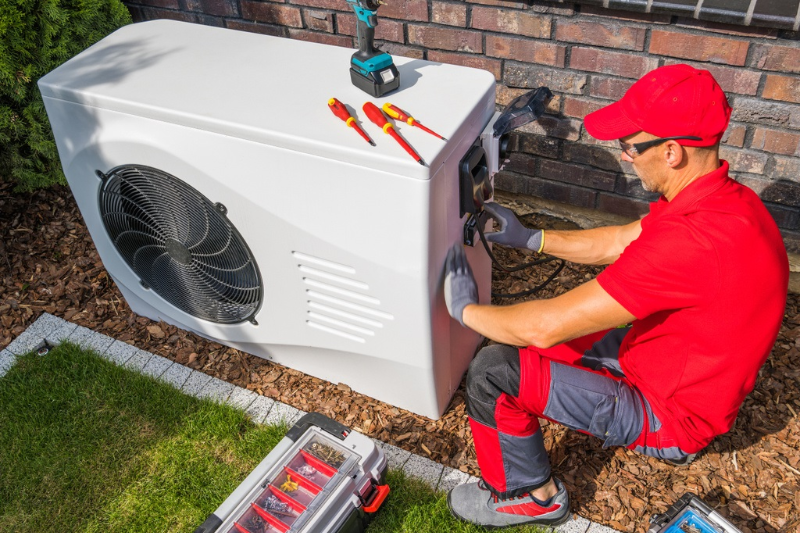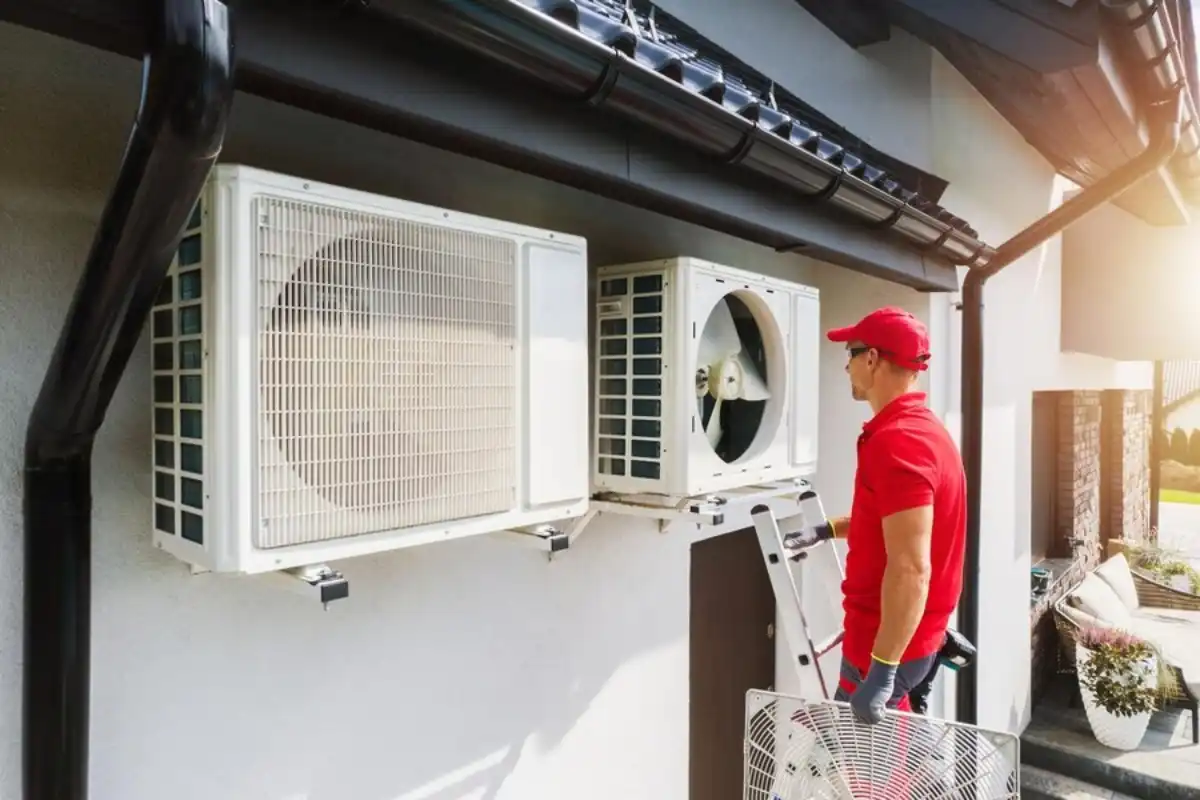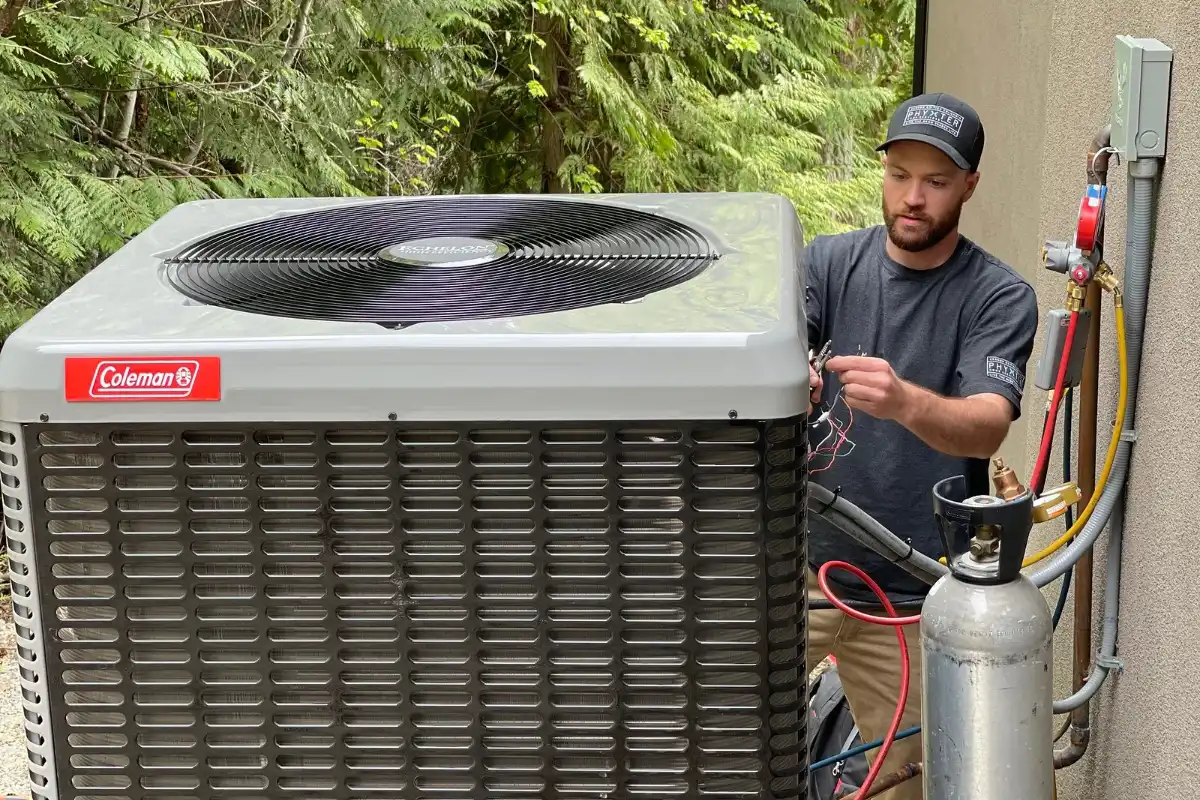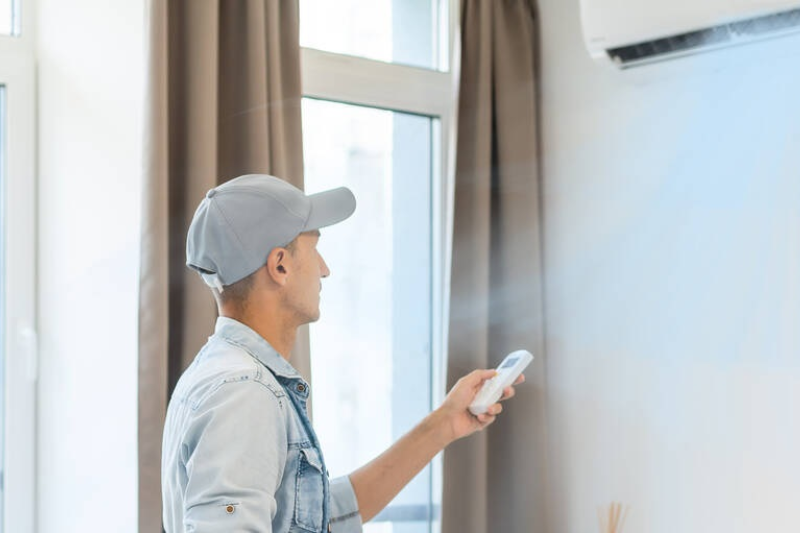Table Of Contents
In the world of heating and cooling, several devices come to mind. Hot water systems such as water heaters are known worldwide, but the heat pump system is a versatile and energy-efficient solution.
Although it has served well in many households through the ages, some people may not know much about it and how it works. Here, we will explore the basics and how these systems operate, providing warmth in winter and coolness in summer.
What is a Heat Pump System?
A heat pump system is a heating device that takes heat from one location to another. Only a tiny amount of energy is used during the process to accomplish this task. Unlike traditional HVAC systems that generate heat, which you may know, a heat pump works by simply transferring it.
How Heat Pump Systems Work
Before we jump into the intricacies of heat pump systems, it's crucial to understand why they matter. These systems are pivotal in energy conservation and can be a cost-effective heating solution for you as a homeowner. It is an eco-friendly option you can switch to if you have not already.
Basics of heat pump systems
To comprehend the magic behind heat pump systems, you may have to go through the breakdown of their fundamental components.
Overview of Heat Pump Technology
At its core, a heat pump system operates on the principle of heat transfer. It can extract heat from the air, ground, or water, depending on the type of system.

Critical components of a heat pump system
A heat pump system is made up of different components. Knowing the key features will suffice for you to understand how it works.
- Evaporator: The evaporator is the part where the magic begins. This component absorbs heat from its surroundings, whether outside air or the ground.
- Compressor: The absorbed heat-carrying refrigerant is then compressed. Once this is done, its temperature and pressure get elevated.
- Condenser: In the condenser, the high-pressure, high-temperature refrigerant releases its acquired heat, warming the interior space during winter.
- Expansion valve: This expansion valve regulates the flow of the refrigerant, preparing it for the next cycle.
Heat pump operation
Before fully understanding a heat pump system's operation, you must explore its two primary modes: heating and cooling.
Heating mode
- Absorption of heat from the air source heat pump or ground provides the system with the raw material it needs.
- The compressor gets to work at this stage, increasing the temperature and pressure of the refrigerant.
- The hot water systems inside the building benefit from releasing this heat. Residents of a home are kept warm and cosy.
Cooling mode
- When it's time to cool things down, the process is reversed. The heat pump begins to absorb warmth from inside the building.
- The refrigerant, now carrying the absorbed heat, undergoes compression.
- The outdoor unit releases this heat; when done, the house's interior is left comfortably cool.
Types of heat pump systems
There are different varieties of heat pump systems, each with unique characteristics.
Air-source heat pumps
- Advantages and disadvantages: Air source heat pumps perform well in various climates, although they are known to have limitations in extreme conditions.
- Suitable environments: Understanding where and when air-source heat pumps perform best is crucial for optimal efficiency.
Ground-source (Geothermal) Heat Pumps
- Exploring the intricacies of source heat pumps has to do with having a good understanding of geothermal heat exchange.
- Installation considerations: While geothermal systems are efficient, you must carefully consider some geological factors before installing them.
Energy Efficiency and Environmental Impact
If you compare traditional heating and cooling systems and heat pump systems, you will realise that there are some energy efficiency and environmental benefits to enjoy.

Comparison with traditional systems
- The efficiency of heat pump systems is way better than that of their traditional counterparts.
- The dual capability to heat and cool makes them a year-round energy-saving solution.
Impact on electricity consumption
Understanding how heat pump systems impact electricity consumption is crucial for assessing their overall cost-effectiveness.
Environmental benefits of heat pump systems
The environmental advantages of heat pump systems extend beyond energy efficiency. One of the ways you can be sure that using them makes you an advocate for a safer environment is the fact that they contribute to a greener and more sustainable future.
Considerations for installation
Installing a heat pump system is not a one-size-fits-all endeavour. Copious factors come into play to ensure optimal performance.
Sizing of the heat pump
- Understanding your space's heating and cooling needs is essential for sizing the heat pump appropriately.
- An accurately sized system ensures efficiency and prevents unnecessary wear and tear.
Proper insulation and sealing
To truly maximise the efficiency of your heat pump system, you have to see to it that you have a well-insulated and sealed space in your home. Once you can prevent heat loss or gain, rest assured that the system will operate at its peak.
Integration with Existing HVAC Systems
If you are considering a switch to heat pump systems, integrating them with existing HVAC setups requires careful planning and professional guidance. You cannot dabble in this yourself unless you are an HVAC professional. Otherwise, you will need the services of one to get the job done.

Maintenance and troubleshooting
Owning a heat pump system comes with responsibilities. Regular maintenance and troubleshooting are essential tasks you have to handle for long-term performance.
Regular maintenance tasks
- Routine checks and cleaning of the system components keep it running smoothly.
- Monitoring refrigerant levels and ensuring proper airflow are vital maintenance tasks.
Common issues and troubleshooting tips
- Familiarising yourself with common heat pump system issues prepares you to troubleshoot effectively.
- From strange noises to insufficient heating or cooling, understanding the signs of trouble is paramount here.
When to Seek Professional Help
While some issues are DIY-friendly, recognising when it's time to call in the professionals is crucial to avoid further damage and ensure safety. The element of risk is always high with any appliance that has to do with electricity, and you don't want to leave anything to chance.
Future Trends in Heat Pump Technology
As technology advances, so do heat pump systems. Let's glimpse what the future holds for this innovative heating and cooling solution.

Innovations in heat pump design
- With ongoing advancements in heat pump design, there is hope efficiency and performance will be enhanced.
- Smart technologies and automation will likely play a significant role in the next generation of heat pumps.
Integration with renewable energy sources
The marriage of heat pump systems with renewable energy sources aligns with the growing trend toward sustainable living. By exploring the possibilities of increased efficiency in heat pump systems, you can pave the way for even more significant energy savings and environmental positives.
Why should you install heat pump systems?
Whether you are simply looking to upgrade your current system or install a new one, considering a heat pump system is a step towards a more sustainable and comfortable future.
As technology evolves, so does the potential for a brighter, more energy-efficient future. Embracing innovations in heat pump systems contributes to a world where heating and cooling are functional and environmentally responsible.
Seek the Help of an HVAC Expert
A heat pump system is more than just a heating and cooling solution. It's a gateway to energy efficiency, cost savings, and a greener planet. Understanding the basics of how heat pump systems operate is essential for making informed decisions.
It would be best if you understood now that the versatility of air-source heat pumps and the efficiency of geothermal systems cater to various needs. To expand your knowledge of heat pump systems or have one installed, repaired or maintained, speak to professional HVAC technicians.
Experienced HVAC technicians are valuable resources for individuals seeking knowledge about heat pump systems and those requiring installation, repair, or maintenance services. Their expertise and dedication to quality work ensure that your property's heat pump system operates at peak efficiency and reliably, delivering comfort and peace of mind.




